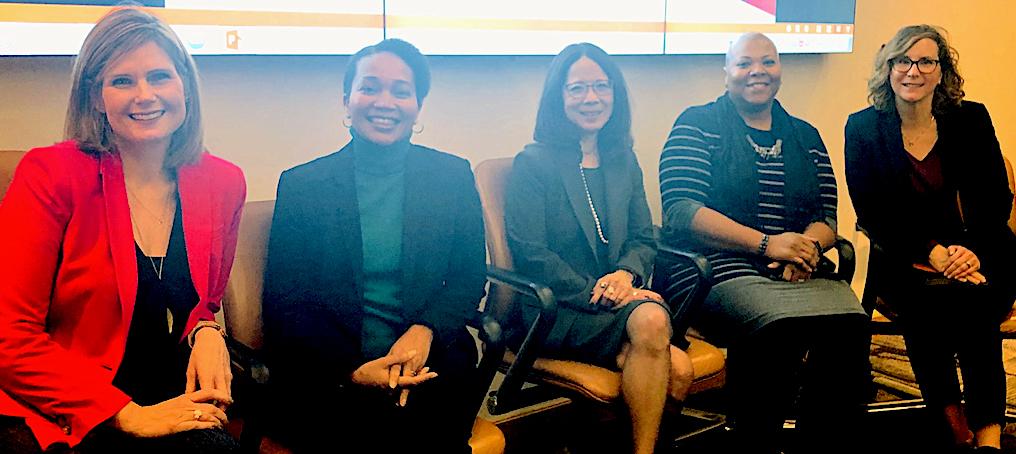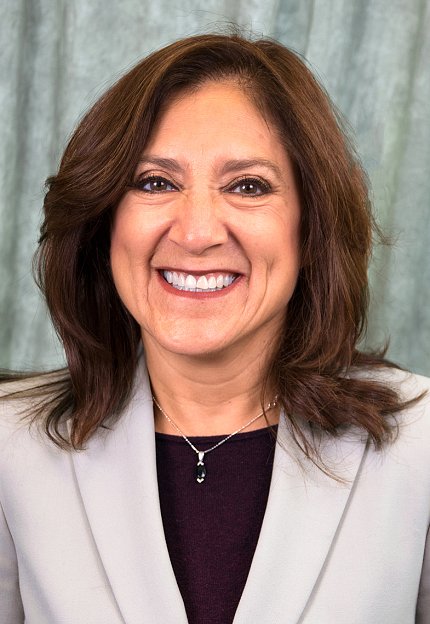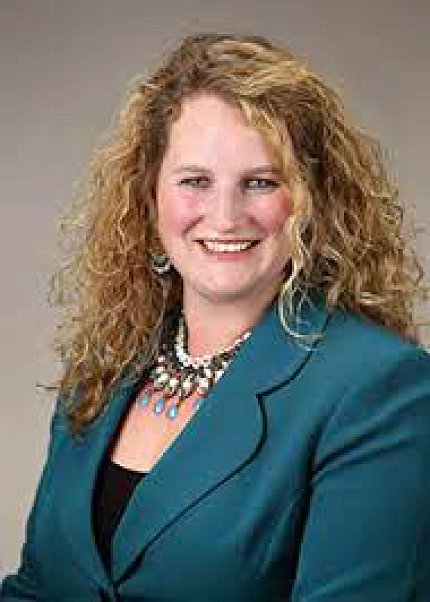Leadership Education Network Encourages Women in Science

Photo: Janki Patel
Women are steadily empowering each other and narrowing the gender gap within the science field. By establishing rewarding and successful careers in science, women have risen to higher positions through hard work.
Recently a group of college students, all women, from the Public Leadership Education Network (PLEN) gathered at Natcher Conference Center for a career-focused symposium, “Preparing Women to Lead: Women in Science Careers,” organized by NIH’s Office of Science Policy. Attendees gained insight on how to build a successful science career from two senior scientist keynote speakers and a panel of women leaders who shared their journeys to leadership positions in biomedical research.
PLEN’s mission is to increase the number of women in top leadership positions, influencing all aspects of the public policy process.

Photo: NIMHD
Dr. Anna María Nápoles, NIMHD scientific director, relayed her set of beliefs: “Have integrity [and] courage and help the voices that are not heard,” along with “know what re-energizes your being.” Her career path formed from an immigrant family background. She discussed how she has endured obstacles such as racism, sabotage and financial stress. She overcame barriers by building interpersonal emotional intelligence, staying connected with her culture and heritage and maintaining core support from her family and trustworthy peers.
Dr. Carrie Wolinetz, NIH associate director for science policy and acting chief of staff, began her career as a “zookeeper” and went on to become a key advisor to the NIH director. She said a “high level of personal well-being, confidence and belief in one’s own abilities to succeed” will lead to where you’re supposed to be in life. There is no perfect roadmap to successful careers, she noted. Workplace situations and personal life relationships should not hinder your ability to grow.
Both speakers spoke of their inspiration to enhance public health in fields underrepresented by women. They advised: “search opportunities to gain experience [volunteering on working groups or committees],” “create and expand your network with people who offer different perspectives,” and ultimately, “love what you do to value your quality of life.”
They also said young people today need mentors who can educate, inspire and empower the next generation of women leaders by learning and sharing the core values of leadership development.
The symposium included a panel discussion with five senior NIH staff—Renate Myles, Dr. Rashada Alexander, Dr. Nakela Cook, Robin Kawazoe and Dr. Lyric Jorgenson.
Myles said she worked in various industries, promoting key messages to the public through numerous communication outlets. Her significant skill was to present complex science and communicate effectively to target audiences. She followed her passion and when facing challenges or roadblocks in her career, she found strategies for moving forward.
“Learn how to raise your visibility within the division,” Myles advised. “Identify effective and trustworthy mentors who can help advance your career. Define your core network of colleagues and [work actively to become] an expert in your field.”

Photo: NIH
Cook offered tips for participants weaving together their own stories to shape their careers and personal development. “Be true to yourself,” she said. “Know that plots can change and be flexible to their shape. Keep discovering yourself and identify your strengths and weaknesses—one day, you will inspire others.”
Kawazoe emphasized that career success depends on efforts to “refine your interpersonal and communication skills; be persistent in overcoming whatever challenges you encounter; identify solutions, not just problems; be a proactive member of the team; and [not only] align yourself with people you trust and respect, but also seek out people who offer different perspectives to broaden your horizons.”
Alexander’s key message was to take risks and never stop being curious. “You have a lifetime of opportunities to broaden your horizon and know that you have a choice at the end of the day,” she said.
Jorgenson echoed the other panelists, adding, “Be flexible, open to new opportunities [and be] a problem-solver. Challenge yourself, learn and your soul will find its way into merging college degrees and passion together.”
The event concluded with a brief Q&A period, followed by a networking lunch and tour of the Clinical Center.
